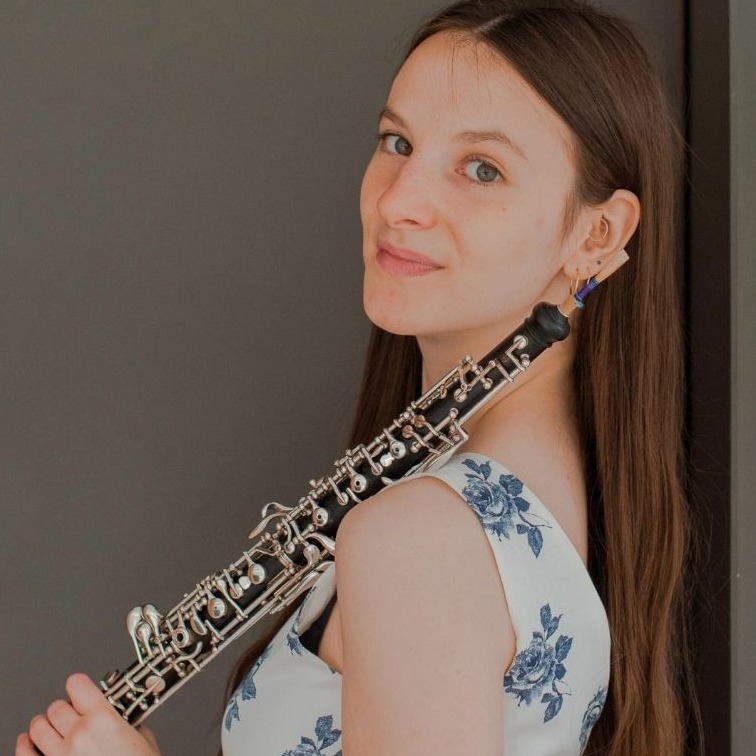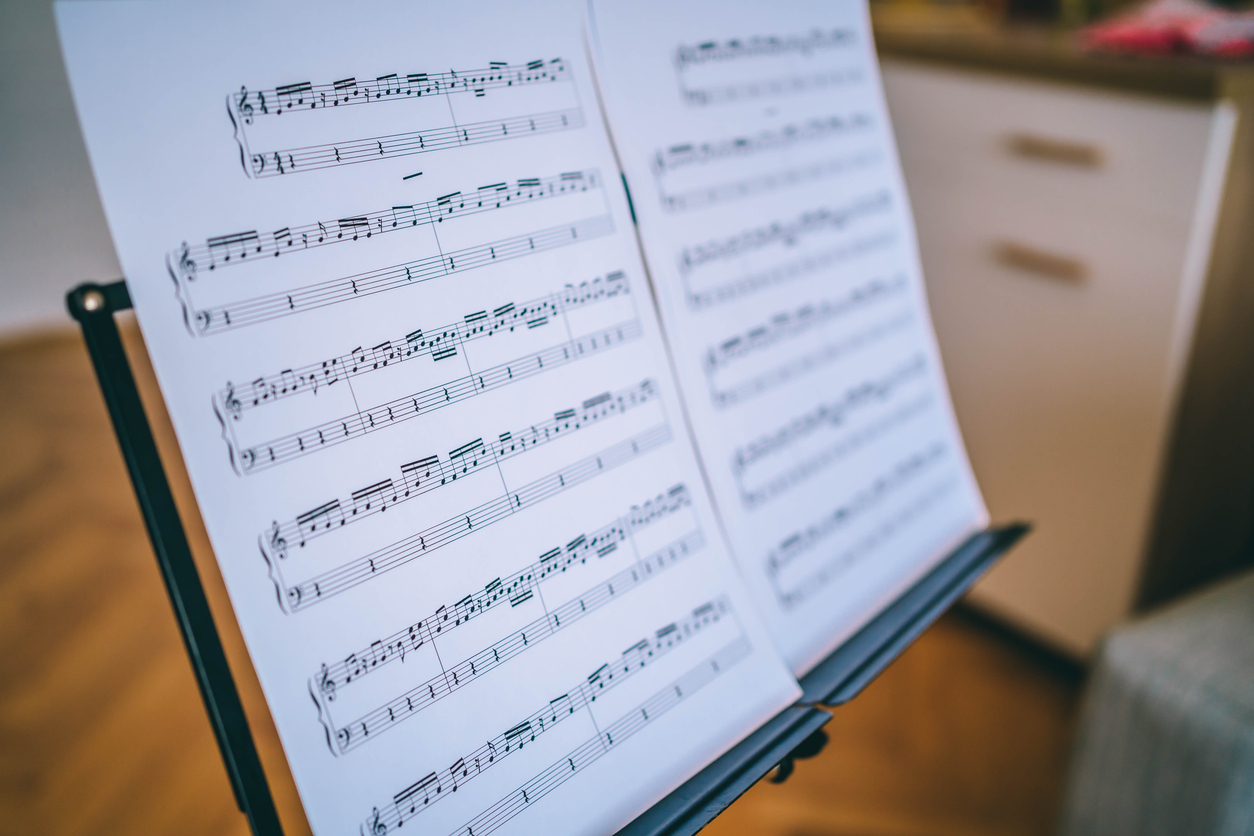Benefits of Private Lessons
for Oboe & Bassoon
In this article, oboist Anna Betuzzi will walk you through the many benefits of taking private oboe or bassoon lessons with an experienced teacher. Anna has spent years both as an oboe student and as an oboe teacher, and she’s excited to share her perspective with you on this important topic!
Do you need help finding a private teacher in your region? Reed Supplies Canada maintains a directory of teachers in all major cites across Canada, like Toronto, Montreal, Ottawa, and Vancouver!
Reach out to info@reedsuppliescanada.ca to inquire about private teachers close to you.

Instrument Specific Knowledge
As private teachers are professional musicians themselves, they bring a valuable knowledge base of instrument-specific facts and tips that would only be known to a professional oboist or bassoonist.
While a band teacher or conductor will be able to teach you the fundamentals of music such as rhythm, note names, and dynamics, there are many other aspects to oboe and bassoon playing you’ll need to know in order to have the best experience playing your instrument.
Oboe and bassoon are highly specialized, unique instruments. Here are some examples of instrument-specific knowledge that you will learn from a private teacher, and why these things are important:
-
Correct posture: the posture for both oboe and bassoon is different from other instruments. For example, while clarinet and oboe posture may look similar, the oboe should be held at a higher angle than clarinet. Having correct posture when you play is important for sound production, and it also helps avoid injuries.
-
Correct embouchure: Your embouchure is the position of your lips and face muscles on the reed. The embouchures needed for oboe and bassoon are completely different from other woodwind instruments. Your embouchure affects your intonation, articulation, and sound, and finding an effective embouchure position will increase your playing endurance. As everyone’s facial structure is unique, a private teacher will help you find the best embouchure for your anatomy.
-
How to take care of your reeds: oboe and bassoon reeds need to be treated differently than clarinet and saxophone reeds. A private teacher will show you how to correctly soak your reeds, as well as help you identify an under-soaked or over-soaked reed. They will even teach you how to make your reeds last longer!
-
How to safely put your instrument together: oboes and bassoons are fragile, and could be damaged if they are put together incorrectly. A private teacher will show you the best way to put your instrument together safely.
- How to take care of your instrument: oboes and bassoons also need special care to keep them in tip-top condition. A private teacher will show you how to use items such as a swab, cork grease, and polishing cloth to ensure your instrument has a long lifespan.
Personalized Guidance
Everyone is unique, and a practice routine that works for one person may not work at all for someone else. A private teacher will tailor every aspect of lessons to your unique needs and goals. This personalized guidance is exactly why private lessons are so effective.
Here are just some examples of things your private teacher can personalize for you:
-
Practice plan: a private teacher will help you understand your learning style, so that you can organize your practice time to be more effective and efficient.
-
Exercises: they will recommend (or even create) exercises for you to improve specific aspects of your playing, such as articulation, intonation, and rhythm.
-
Etudes/Method books: they will recommend an etude or method book for you to align with your playing experience level and your specific goals.
-
Repertoire: a private teacher knows a huge selection of music repertoire pieces, and can recommend a piece of music for you to learn based on your unique goals, preferences, and needs.
- Reeds: they will help you figure out what kind of reeds to buy, so you know which brand, strength, and material are best suited to your needs. They can also help adjust your reeds to work better for you, and some teachers even make handmade reeds for their students!
Problem Solving with your Teacher
Oboes and bassoons are complicated instruments, and it can be difficult to tell what the problem is if your instrument is not working the way it usually does. A private teacher will be able to hone in on the source of a problem, and can also direct you to the best way to fix it! Here are some problems you may encounter, and what a private teacher can do to help you:
-
Reed problems: if your reed is not working, your private teacher will be able to examine the reed and determine the problem. Oftentimes, they may be able to fix the reed for you (depending on what the problem is), but if the problem can’t be fixed, your teacher will show you how to avoid the problem next time.

- Instrument problems: if your instrument is not working, sometimes the problem can be easily fixed. Your private teacher can determine if the instrument was put together incorrectly, if you aren’t covering a tone hole fully, if you’re pressing an extra key by accident, or any other small problem that may result in the instrument not sounding correctly.
- Repair problems: your teacher can also identify if your instrument needs to be repaired. This will save you a lot of time and frustration. Some teachers will have the knowledge to make small repairs on your instrument. But every teacher will help you determine when it’s time to take your instrument to a repair shop, and they can recommend repair technicians as well.
Consistency with Private Lessons
Having a weekly (or even monthly) private oboe or bassoon lesson is a great way to stay consistent in your practice routine. Regular lessons help you establish a stable routine, and you can easily measure your progress by tracking improvements from lesson to lesson.
Having a lesson scheduled can be a great motivation to practice as well. If you have a lesson to prepare for, you will be motivated to spend more time practicing, and you are also more likely to practice the music your teacher has assigned for you, which will improve your playing much faster than practicing random pieces of music.
Playing for another person (your teacher) is also a great way to practice for performances. If you are used to playing for your teacher, it will be easier to cope with any anxiety you may experience when performing in public. Your teacher will also have tips and techniques to cope with performance anxiety as well, if you need!
Conclusion
I hope this guide helped you understand the advantages of taking private oboe or bassoon lessons. Specialized knowledge, personalized guidance, problem-solving, and having something to practice for each week can all help you improve your oboe or bassoon playing exponentially. If you need help locating a private teacher near you, send us an email at info@reedsuppliescanada.ca for more information!

